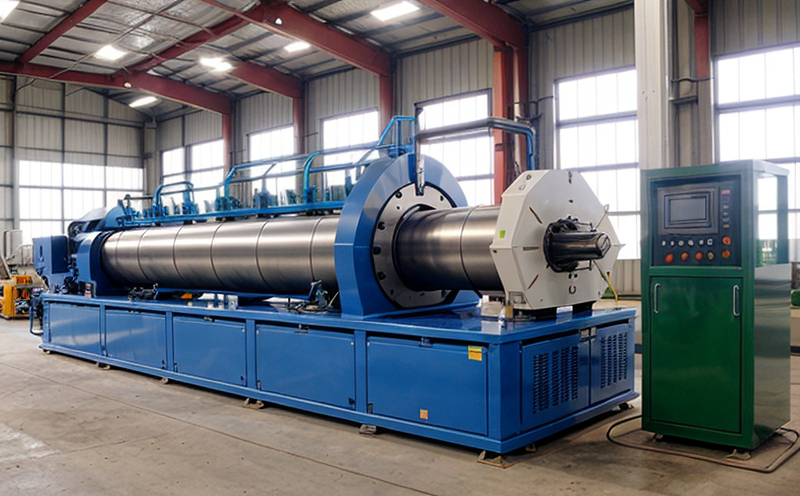EN 15343 Plastics Recycling Traceability and Conformity Assessment
The European Standard EN 15343 sets out a framework for plastics recycling traceability and conformity assessment. This standard is essential for ensuring that recycled plastic products meet the required quality standards, align with environmental regulations, and contribute to sustainable waste management practices.
Recycling traceability involves tracking materials through each stage of the recycling process from collection to end use product. Compliance with EN 15343 helps to ensure that recycled plastics can be reliably traced back to their original source. This is critical for verifying the origin and quality of raw materials used in new products.
The standard covers several key aspects, including identification codes, batch traceability systems, and conformity assessment procedures. It provides a structured approach to managing plastic waste streams and promoting circular economy principles. Compliance with this standard can help businesses meet regulatory requirements while also enhancing their reputation as environmentally responsible entities.
EN 15343 applies specifically to post-consumer recycled plastics (PCR) used in various applications such as packaging, construction materials, automotive parts, and consumer goods. By implementing the traceability system outlined by this standard, companies can demonstrate that they are committed to sustainable practices throughout their supply chain.
The importance of traceability cannot be overstated when it comes to recycling plastics. Without proper tracking mechanisms in place, there is potential for contamination or mislabeling which could lead to substandard products entering the market. Additionally, without clear documentation about where raw materials come from and how they were processed, manufacturers may struggle to ensure compliance with relevant environmental regulations.
Compliance with EN 15343 also offers numerous benefits beyond just meeting legal obligations. For instance, it allows organizations to better manage their resources by reducing waste generation and maximizing the value extracted from discarded materials. Moreover, adherence to this standard can enhance brand reputation among consumers who increasingly demand transparency regarding how products are manufactured.
In summary, EN 15343 plays a vital role in promoting responsible recycling practices within the plastics industry. By providing guidelines for tracking recycled materials through every stage of production, it enables companies to maintain consistent quality standards while contributing positively towards environmental sustainability goals.
Why It Matters
The implementation and adherence to EN 15343 is crucial for several reasons:
Environmental Impact: Proper traceability ensures that recycled plastics are not only used but also properly managed, reducing landfill waste and promoting resource efficiency.
Regulatory Compliance: Many countries have implemented policies requiring businesses to comply with certain standards related to recycling. Failure to meet these requirements can result in fines or other penalties.
Sustainability: By ensuring that recycled materials are of high quality, companies can reduce their carbon footprint and contribute positively towards global sustainability initiatives.
Consumer Trust: Transparent supply chains build trust between manufacturers and consumers. Consumers are more likely to purchase products from brands they perceive as environmentally friendly.
Economic Efficiency: Effective traceability helps companies avoid costly mistakes due to contaminated or mislabeled materials, leading to improved operational efficiency and reduced waste disposal costs.
Quality and Reliability Assurance
The quality of recycled plastics is directly influenced by the effectiveness of traceability systems. Through meticulous tracking from collection points through processing stages right up until end products are manufactured, we ensure that only high-quality PCR materials enter downstream processes.
This approach guarantees consistency in material properties across different batches and lots, ensuring uniformity throughout supply chains. It also facilitates easier identification of problematic areas within the recycling process, allowing for prompt corrective actions if necessary.
Additionally, regular audits conducted according to EN 15343 specifications help maintain rigorous quality control measures. These include inspections at various points along the chain, from raw material reception through finished goods inspection. Any deviations from established standards are promptly addressed, thereby maintaining product integrity and reliability.
The use of advanced technologies like barcoding or RFID tags further enhances traceability capabilities by providing real-time data on each step taken during recycling operations. This allows for more accurate tracking and better decision-making regarding resource allocation and process optimization.
Customer Impact and Satisfaction
Customers value transparency in sourcing and manufacturing processes, especially when it comes to environmentally friendly products. Demonstrating compliance with EN 15343 reassures them that the recycled plastics used in their purchases originate from reputable sources and meet strict quality criteria.
By adhering to these standards, manufacturers can enhance customer satisfaction by delivering products with consistent performance characteristics. This not only improves brand loyalty but also fosters long-term relationships based on mutual respect for environmental stewardship.
Moreover, meeting regulatory requirements associated with EN 15343 demonstrates a company's commitment to sustainability, which is becoming increasingly important as environmental concerns gain prominence globally. As more consumers prioritize eco-friendly choices, brands that lead in this area stand out from competitors who lag behind.
In conclusion, compliance with EN 15343 contributes significantly to enhancing customer trust and satisfaction by ensuring reliable supply chains and high-quality materials. This ultimately translates into increased brand loyalty and competitive advantage within the marketplace.





